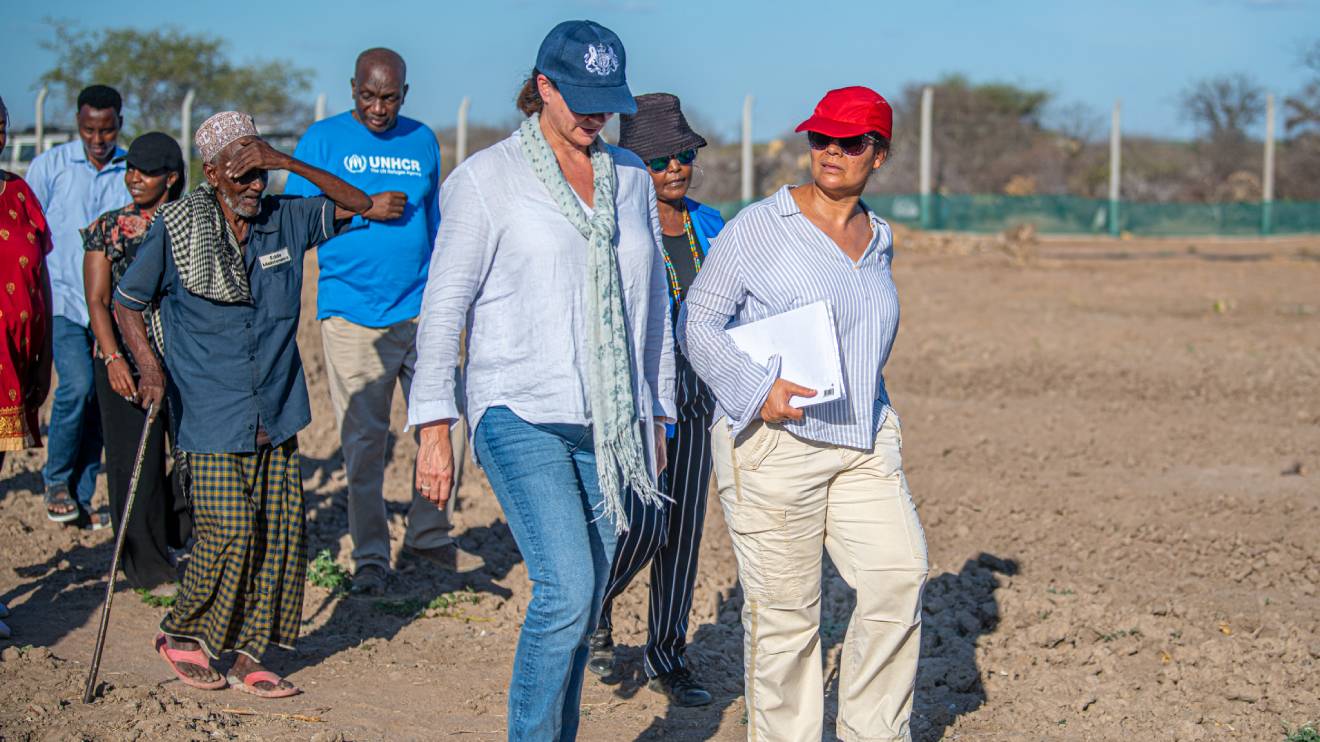A tapestry of hope and resilience weaves through the Dadaab Refugee Camp, where the British Deputy High Commissioner and Development Director, Leigh Stubblefield, recently stepped into a world marked by both struggle and community spirit.
Her visit brought to light the transformative impact of UK-funded initiatives designed to empower refugees and foster harmony between them and their host communities.
Launched in 2018, the Pamoja programme has received a robust investment of Shh4.6 billion (£28 million) from the British High Commission, enabling the UN Refugee Agency (UNHCR) to deliver essential services in both the Dadaab camps and Kakuma Municipality.
Through this programme, critical areas such as healthcare, nutrition, and sanitation have been significantly enhanced, alongside efforts to combat gender-based violence and provide support for vulnerable individuals, including those with disabilities.
Stubblefield’s visit was marked by poignant moments, such as witnessing the registration of asylum seekers and the distribution of essential items like blankets, cooking utensils, and solar lamps to new arrivals at Ifo 2 camp.
Read More
Engaging directly with the community, she spent time with local organisations Halgan and MonyQadow, which are at the forefront of tackling Gender Based Violence (GBV) and supporting teenage mothers through mentorship and a rescue centre for survivors.
Reflecting on her experiences, Stubblefield expressed her admiration for the resilience of the refugees.
“In Dadaab this week, I saw first-hand the vital importance of support to UNHCR and other organisations who are empowering refugees to build lives and livelihoods alongside their host communities,” she shared.
“It was heartwarming to see children in their natural element playing in the child-friendly spaces at Hagadera. Thanks to the UK support, refugees and their Kenyan neighbours can access quality healthcare at the Ifo 1 hospital, have access to water ATMs, and have access to livelihood opportunities.”
Stubblefield also reiterated the UK’s steadfast commitment to the Global Refugee Compact, stating, “We are committed to continue working with Kenya to deliver on our commitments... to ensure that host communities get the support they need and that refugees can lead productive lives.”
Her remarks underscored a collaborative vision for the future, encapsulated in the upcoming Shirika plan alongside the Kenyan government.
Echoing her sentiments, William Ejalu, the UNHCR Head of the Sub-Office, noted the importance of sustained funding.
“Funding from the UK Government is ensuring life-saving activities can continue. Here in Dadaab, multi-year funding means we can plan and continue the implementation of activities, positively impacting the lives of refugees and the communities hosting them,” he stated.
The Pamoja programme exemplifies the UK's long-term strategy to mitigate humanitarian needs, presenting solutions that empower refugees and bolster the resilience of the communities that host them.
As Stubblefield’s visit demonstrated, the partnership between the UK and Kenya is not merely a commitment—it is a lifeline for those striving to build a brighter future amid adversity.












